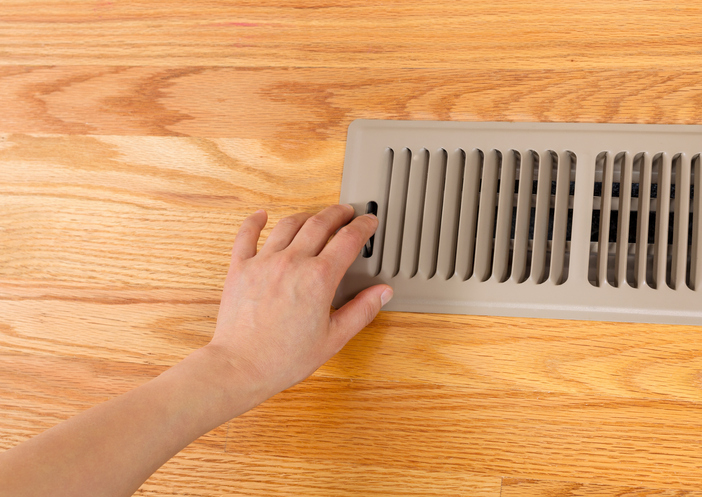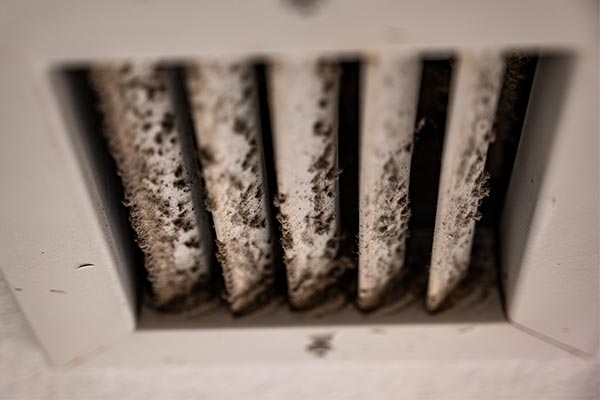It may sound like a good idea to close vents in rooms that you aren’t using but in actuality, it may be causing more harm to your system than good. Here are a few reasons to keep them open for maximum comfort and safety.
But first, why would you want to close vents in the first place? Many homeowners think that closing vents in unused rooms will save energy and money or alleviate rooms that are too hot/cold.
However, it's important to consider that your HVAC system is (or should be) designed to heat/cool your home based on size and other relevant factors. This means that closing multiple vents makes the system work harder to deliver tempered air to the rest of your home.

Will Closing Air Vents Save Me Money?
Many of us are always looking for ways to save money around the house, especially following recent energy cost increases and general inflation. One common belief is that closing vents in unused rooms can save money, but the answer is that closing vents is not a reliable way to save on heating bills.
Not only will closing off unused rooms have little effect on your energy bills, but it could even cost you more money by making your heating and cooling system less efficient.
The Negative Effects of Closing Air Vents in Unused Rooms
Potential damage and airflow efficiency
Your HVAC system air ducts are designed to direct air evenly throughout your whole house, so any restriction could possibly throw off the balance, causing your system to overproduce. This extra pressure forces your system to work overtime to get the air where you actually want it.
Closing too many registers can also restrict airflow so much that the coils freeze, which can lead to a damaged compressor. A damaged compressor will reduce your system's efficiency and cost you more money on heating bills.
Bursted ducts
In addition to frozen coils and damaged compressors, closing air vents can cause leaks or bursts in the ductwork. While small leaks in ductwork are fairly common, closing too many vents will cause pressure to build which will worsen the leaks and even cause a burst.
What happens when there are bursts in the ductwork? Air will be diverted from your rooms and directed to where you don't want it, such as in your attic/crawl space or outside. Not only will lose the heated/cooled air and feel uncomfortable, but you'll also be wasting energy and money.
Carbon monoxide poisoning
A carbon monoxide leak due to a cracked heat exchanger is another potential issue of having closed air vents. This colorless, odorless, and tasteless gas can quickly take over without any alerts and is much more serious than the other potential side effects of closing registers. Be sure to have a working carbon monoxide detector in your home at all times to prevent any incidents.
Mold/mildew

When a vent is closed, lack of circulation in the air can lead to condensation forming in the ducts. Mold behind the air vents/inside the ductwork is much harder to control than when it's out in the home, and you would need to contact a professional to come to remove it/clean it. Not only will it smell or look gross, but it will also cause poor indoor air quality. Proper airflow will prevent moisture from building, therefore limiting mold spores from forming and blowing into your home.
If you cannot keep the air vents in your home fully open, it's recommended to close them only partially -- about 50 to 74 percent -- if possible. This will ensure that air continues to circulate throughout the entire home.
Simply put, the best reasons to keep your vents open at all times are to maintain optimal airflow and effectiveness, and general safety. Overall, this helps keep the ducts clear, reduces pressure buildup, and ensures the right balance of air circulation. The efficiency of your unit will save your unit in the long run and keep money in your pocket.
If you live in the Delaware Valley/Greater Philadelphia area and would like to find comfort within your home, visit our website or give us a call at 215 - 245 - 3200 to learn more.



